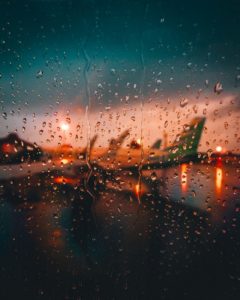 The International Air Transport Association (IATA), which recently voiced its opposition to keeping middle seats empty on planes (a measure aimed at preserving social distancing), has come out against any kind of quarantine of air travellers. It has also warned that the Covid-19 pandemic will hit long-haul travel far more severely than short-haul.
The International Air Transport Association (IATA), which recently voiced its opposition to keeping middle seats empty on planes (a measure aimed at preserving social distancing), has come out against any kind of quarantine of air travellers. It has also warned that the Covid-19 pandemic will hit long-haul travel far more severely than short-haul.
The airline body strongly urges governments to find alternatives to maintaining or introducing arrival quarantine measures as part of post-pandemic travel restrictions.
IATA says its April survey of recent air travellers showed that:
- 86% of travellers were somewhat or very concerned about being quarantined while travelling, and
- 69% of recent travellers would not consider travelling if it involved a 14-day quarantine period.
IATA’s controversial stance on quarantine may clash with the attitude of national public health authorities.
Instead of quarantine, IATA proposes “a temporary risk-based layered approach to provide governments with the confidence to open their border without quarantining arrivals”.
This, IATA says, includes:
- Preventing travel by those who are symptomatic with temperature screening and other measures;
- Addressing the risks of asymptomatic travellers with governments managing a robust system of health declarations and vigorous contact tracing.
IATA has released new analysis showing that the damage to air travel from the Covid-19 pandemic extends into the medium-term, with long-haul / international travel (the type Australians are used to) being the most severely impacted. It says quarantine measures on arrival would further damage confidence in air travel.
IATA and Tourism Economics modelled two air travel scenarios.
Baseline Scenario
- This is contingent on domestic markets opening in Q3, with a much slower phased opening of international markets. This would limit the air travel recovery, despite most forecasts pointing toward a strong economic rebound late this year and during 2021.
- In 2021 we expect global passenger demand (measured in revenue passenger kilometers, RPKs) to be 24% below 2019 levels and 32% lower than IATA’s October 2019 Air Passenger forecast for 2021.
- We don’t expect 2019 levels to be exceeded until 2023.
- As international markets open and economies recover, there will be further growth in air travel from the 2020 low point. But even by 2025 we would expect global RPKs to be 10% lower than the previous forecast.

Pessimistic Scenario
- This is based on a slower opening of economies and relaxation of travel restrictions, with lockdowns extending into Q3, possibly due to a second wave of the virus. This would further delay the recovery of air travel.
- In this case, global RPKs in 2021 could be 34% lower than 2019 levels and 41% below our previous forecast for 2021.
“Major stimulus from governments combined with liquidity injections by central banks will boost the economic recovery once the pandemic is under control,” IATA director general and chief executive, Alexandre de Juniac, stated.
“But rebuilding passenger confidence will take longer. And even then, individual and corporate travelers are likely to carefully manage travel spend and stay closer to home.”
Long-Haul Travel Impact will be Longer Lasting
When the recovery begins, IATA expects it to be led by domestic travel.
- An IATA survey of recent air travellers conducted in April 2020 found that 58% are somewhat or very likely to restrict their initial travel to domestic journeys.
- Domestic Revenue Passenger Kilometres (RPKs) will not recover to 2019 levels until 2022. International RPKs are not expected to return to 2019 levels until 2024.
“The impacts of the crisis on long-haul travel will be much more severe and of a longer duration than what is expected in domestic markets,” de Juniac said.
“This makes globally agreed and implemented biosecurity standards for the travel process all the more critical. We have a small window to avoid the consequences of uncoordinated unilateral measures that marked the post-9.11 period. We must act fast.
No to quarantine
“Even in the best of circumstances this crisis will cost many jobs and rob the economy of years of aviation-stimulated growth. To protect aviation’s ability to be a catalyst for the economic recovery, we must not make that prognosis worse by making travel impracticable with quarantine measures. We need a solution for safe travel that addresses two challenges.
“It must give passengers confidence to travel safely and without undue hassle. And it must give governments confidence that they are protected from importing the virus. Our proposal is for a layering of temporary non-quarantine measures until we have a vaccine, immunity passports or nearly instant COVID-19 testing available at scale,” de Juniac said.
The mutual recognition of agreed measures is critical for the resumption of international travel. This is a key deliverable of the COVID-19 Aviation Recovery Task Force (CART) of the International Civil Aviation Organization (ICAO).
Below: Still quite a few flights in the air. Situation at 1730 AEST Thur 14 May 2020. Source: FlightRadar24

“CART has a very big job to do with little time to waste,” de Juniac said.
“It must find an agreement among states on the measures needed to control COVID-19 as aviation re-starts. And it must build confidence among governments that borders can be opened to travelers because a layered approach of measures has been properly implemented globally. IATA and the whole industry support this critical work.”
Edited by Peter Needham
















